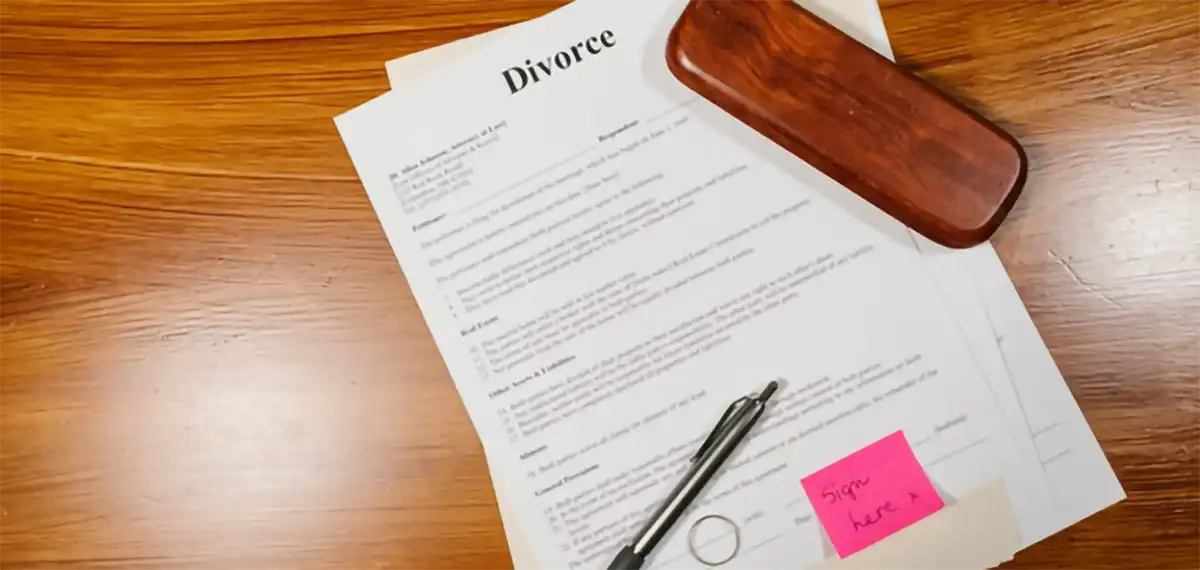
Forming two households out of one is a lot of work — financial, social, and emotional. And it’s much harder if the two don’t agree on how to manage the division of valuables.
The most valuable asset in the mix? It’s likely to be the home.
Often, selling the home and dividing the proceeds is the practical way forward. It can allow each person to start afresh with less square feet than they needed as a couple. But what if one partner isn’t on board with selling the home?
Can the Court Make Your Ex Agree to Sell the Home?

Like so much in family law… It all depends.
Look to your state’s divorce law for direction on the sale and division of shared property. As for assets that already belonged to one partner before the marriage, or valuables given/bequeathed to one partner only, those might be found to belong to that individual alone.
A judge may decide to order the sale of joint property. In a few cases, this must happen promptly — because of a party’s immediate need for sustenance, for example, or to avoid a foreclosure.
If the two people cannot agree on whether a home should be sold, and their lawyers cannot come to some kind of mutually acceptable agreement, the judge will step in and force their hands. And leaving this to the court, rather than coming to an agreement between the parties, will usually incur higher legal costs. What’s more, if you leave this decision to the court, it could drag out to the end of the proceedings. If possible, a court will delay forcing a home sale before a full financial agreement is sorted between the parties. Why? Because taking a home out of the picture can be harmful when one partner or other family members rely on that home.
For all of these reasons, your attorney may reasonably suggest offering to pay your partner a financial “extra” when the home sells, in order to get the reluctant person on board and get on with a sale.
It might seem obvious, but it’s also the case that coming to an agreement yourselves will make it far less stressful to go through the sale process. A partner who isn’t on board can create a lot of friction, potentially putting off buyers.
Important note: Even if your partner isn’t named on the deed or loan documents, you may still need their agreement to sell the home. Your state may require that a spouse sign off on the sale.
During your marriage, you were not named on the deed. If you split up, will you have rights in the home?
What Could Make a Court Force a Sale?
Co-owners must agree together to sell a home. But if the two are at odds over whether the home should be listed, the one who wants to force a sale will need the court to step in.
This will involve a request for a court-ordered partition. A judge can force a buyout between the parties, or order a sale, then sort out a fair distribution of the proceeds.
If one partner won’t sign documents to sell the home despite a court’s direction to do so, the judge can even sign the necessary documents that the reluctant partner won’t sign. Courts can also have a person removed from a home when it needs to be put on the market.
“When a judge orders the home sold, the divorce attorney submits three or four Realtors®, and then the judge will choose one after checking their internet presence or sales record,” as real estate agent Allison Van Wig describes the process on the agent platform HomeLight.
Then the attorney calls the real estate agent to handle the sale.
Negotiating an Agreement: Best for All Concerned
The couple can come to a mutual agreement to sell a joint asset and divide the proceeds. Each partner should have their own lawyer during the negotiations. This helps to ensure a clear understanding, mutually agreed-upon and written down, and one that the court will likely perceive as fair and reasonable.
Whether the parties come to an agreement to sell the home (from one partner to the other or to a third-party buyer), or compensate the other if one partner keeps the home, write down:
- The minimum acceptable offer for the value of the home.
- How the partners will divide the sale proceeds or home equity.
- Who will pay for any needed repairs.
Your attorney can draft an agreement covering the home sale only — not all of the terms of the divorce. Getting the home sale squared away can bring the parties one giant step closer to a full distribution of property.
Each party should also get financial and tax advice from their own professionals. And each should also have assets appraised, to ensure a fair price and equitable distribution between the parties.
Often, one partner will want to keep a home, and agree to let the other partner have the equivalent of their share in cash or other valuables.
Could the Home Be Deemed My Own “Separate” Property?
Unless you’re in one of the minority of states that have community property laws — in which everything that belongs to one basically belongs to both — a home owned by one partner before the marriage remains solely theirs.
If you need to prove that an asset is your separate property, line up receipts, and photos showing you and the asset before the marriage. The court might find that your partner has a claim to the home if housing related costs were shared. Although you might think a home remained separate because you covered the housing costs, your ex might nevertheless have supported your capacity to pay these costs during your time together.
If the home is considered jointly owned, a court will often award one party more of its value than the other partner. “It all depends”…on how long you were together, your comparative contributions to the marriage and children if any, who lived in the home most, or who did what part of the upkeep, renovations, what prior courts have said, and what state law says.
At the End of the Day…
A court weighs many factors into orders that assign property to the splitting partners. We hope this article has oriented readers to the issues to spot, and the questions to ask.
Consult with your divorce attorney regarding the facts of your case and the laws of your state. Remember that neither this website nor any other is a substitute for consulting with your accountant and your legal advocate.
Supporting References
Bari Z. Weinberger of Weinberger Divorce & Family Law Group (New Jersey): Can the Court Force You to Sell Assets During Divorce? (Jun. 29, 2022).
Christine Bartsch and Jedda Fernandez for the HomeLight blog via HomeLight.com: “I’m Not Selling!” Getting the Home Sold When One Partner Refuses – Dealing With the House in a Divorce (May 28, 2025).
Deeds.com: A Couple Breaks Up. What Are The Deed Options? (Jan. 2, 2023).
And as linked.
More on topics: My name is still on my ex’s mortgage, Divorce decree conflicts with the deed
Photo credits: RDNE Stock Project and Kaboompics.com, via Pexels/Canva.
